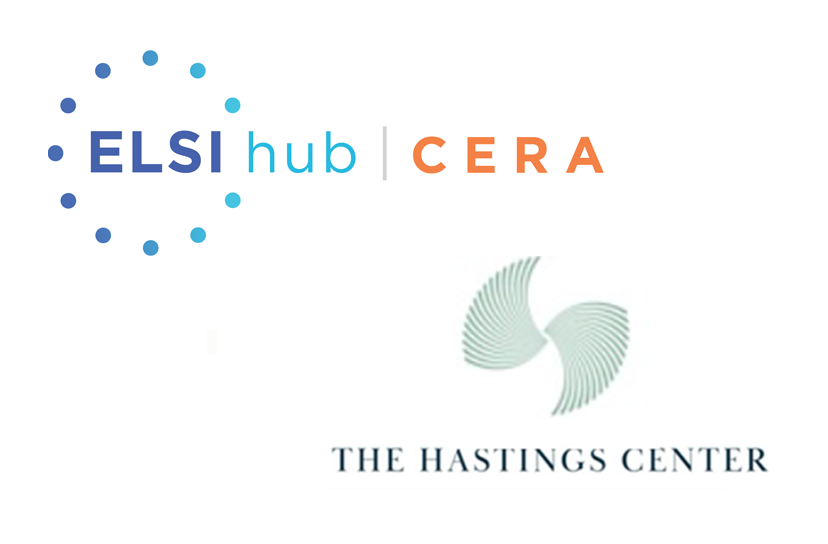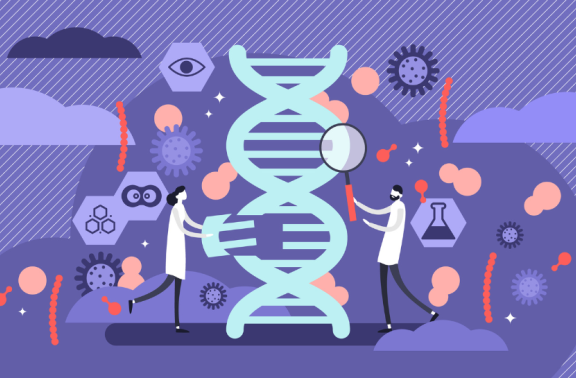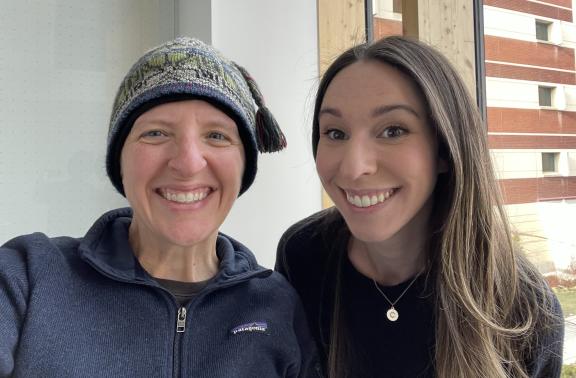
Genomics in Society: New Developments, New Questions: Discussions with Journalists
SERIES INFORMATION
Journalists, journalism students, journalism educators and all interested parties: please join us on for a series of discussions on "Genomics in Society: New Developments, New Questions"
The Hastings Center, in partnership with the Center for ELSI Resources & Analysis (CERA), has hosted four online discussions to inform journalists about the ethical, legal, and social implications (ELSI) of new research in genomics; discuss story ideas on genomics and its ELSI issues; and connect journalists and ELSI experts and resources.
New research on genomic influences on human traits such as intelligence, educational attainment, household income, and sexual behavior is newsworthy and of high public interest. But covering the research findings can be a minefield. The findings are prone to misinterpretation and misunderstanding. And they are already being misused by individuals and groups seeking to justify racist and other biases. The need for responsible journalism about genomics research is greater than ever. How should scientists and journalists work together to report on the findings of this research to the public?”
- Moderator: Amy Harmon, Pulitzer prize-winning journalist at the New York Times covering the intersection of science and society.
- Panelist: Erik Parens, a principal investigator of “Wrestling with Social and Behavioral Genomics” and a senior research scholar at The Hastings Center
- Panelist: Melinda Mills, a genetic scientist at the Sociogenome Project and director of the Leverhulme Centre for Demographic Science (LCDS), University of Oxford
- Panelist: Arbel Harpak, Assistant Professor of Population Health and Integrative Biology at the University of Texas at Austin
"Law Enforcement and Genetic Data" was held on October 26, 2021 - please watch the recording here
DNA has been a powerful crime-solving tool for decades, but law enforcement’s ability to harness it for investigative purposes has grown immensely in recent years. This is due primarily to the massive amount of genetic data now housed in both government-run and private databases, as well as the emergence of new techniques to exploit these vast resources. DTC genetic testing expands the power of forensic searches. Law enforcement access to personal or family genetic information raises ethical concerns. Yet, neither the collection of genetic samples nor their analysis or use by law enforcement has been subject to significant regulation in the U.S. What limits, if any, should be placed on law enforcement’s access to DNA data from DTC companies, health care providers, and researchers?
- Moderator: Sarah Zhang, staff writer, The Atlantic covering science
- Panelist: Ellen Wright Clayton, an internationally recognized leader in the field of law and genomics who holds appointments in Vanderbilt University’s medical school and law school, as well as the Center for Biomedical Ethics and Society. She is a Hastings Center fellow
- Panelist: CeCe Moore, chief genetic genealogist for Parabon Nanolabs, heading the Genetic Genealogy Services for law enforcement unit
"Precision Medicine Research, ‘All of Us’, and Inclusion" was held on November 16, 2021 - please watch the recording here
The U.S. government is investing heavily to make precision medicine a reality—targeting preventive care and medical treatment to individual patients based on their genetic and other data. A major component of this effort of the National Institutes of Health’s “All of Us” Research Program, an unprecedented initiative to collect health-related data from at least one million people living in the U.S. to build a database of information from people of many backgrounds, ages, geographic regions, gender identities, sexual orientations, and health statuses. This session will address the ethical, legal, and social issues of the massive the data collection that is essential to precision medicine research. What kinds of diversity are needed in precision medicine data sets? How can precision medicine research help overcome health inequities, such as systemic bias, lack of affordability, and obstacles to access? What are the clinical challenges to recruiting and retaining diverse participants? Why conduct precision medicine research when so many people lack access to even basic medical care?
- Moderator: Nidhi Subbaraman, reporter, Nature.
- Panelist: Sandra Soo-Jin Lee, chief of the Division of Ethics in the Department of Medical Humanities and Ethics at Columbia University, a co-principal investigator of the Center for ELSI Resources & Analysis (CERA), and a Hastings Center fellow.
- Panelist: Carolyn Neuhaus, research scholar at The Hastings Center and a principal investigator on two projects concerning the All of Us Research Program.
- Panelist: Katherine Blizinsky, policy director for the All of Us Research Program.
Please email [email protected] with any questions
Addressing Racism in Medical Research and Publishing was held on November 30, 2021 - please watch the recording here
Racism and unconscious bias persist in medical research. Given that journalists who write, or aspire to write, about medicine look at journals for story ideas, the editors of those journals have an indispensable role in identifying and eliminating racism in the review and publication of research. What antiracist steps are leading journals taking? What more should be done? What kinds of cues can help journalists recognize racial bias in a research article?
- Moderator: Vabren Watts, equity director, Health Affairs
- Panelist: Fernando De Maio, Director of Health Equity Research and Data Use in the Center for Health Equity at the American Medical Association and a professor of sociology at DePaul University.
- Panelist: Mildred Cho, Professor at Stanford University and Associate Director of the Stanford Center for Biomedical Ethics
Please email [email protected] with any questions
Beginning in 2021, The Hastings Center will offer an annual “bioethics for journalists” discussion series. It is supported by the Callahan Public Programs, named in honor of Daniel Callahan, co-founder of The Hastings Center. Each year, Hastings will join forces with a prominent partner to bring the most cutting-edge ethical issues in science and health to journalists.



